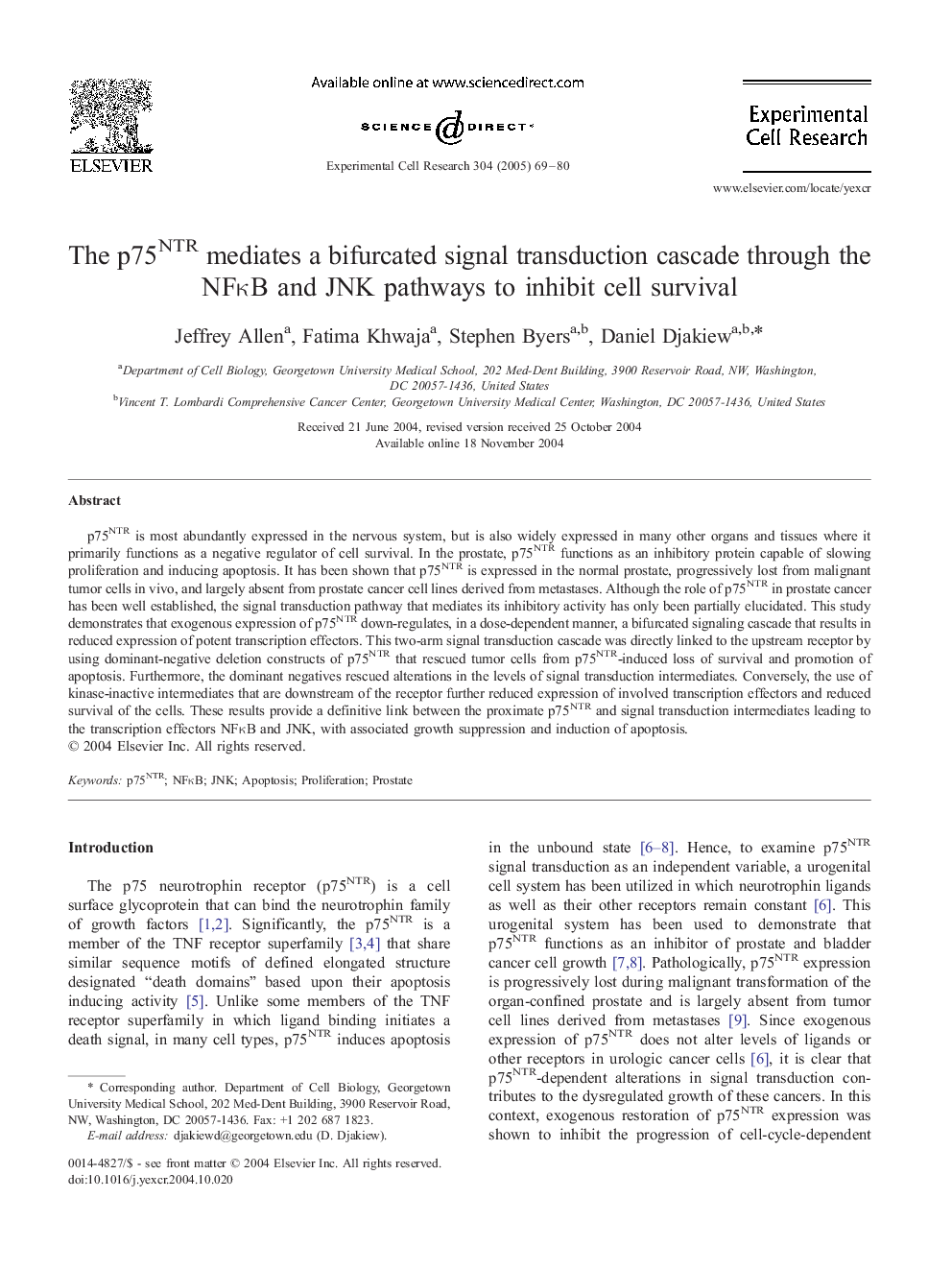| Article ID | Journal | Published Year | Pages | File Type |
|---|---|---|---|---|
| 10905598 | Experimental Cell Research | 2005 | 12 Pages |
Abstract
p75NTR is most abundantly expressed in the nervous system, but is also widely expressed in many other organs and tissues where it primarily functions as a negative regulator of cell survival. In the prostate, p75NTR functions as an inhibitory protein capable of slowing proliferation and inducing apoptosis. It has been shown that p75NTR is expressed in the normal prostate, progressively lost from malignant tumor cells in vivo, and largely absent from prostate cancer cell lines derived from metastases. Although the role of p75NTR in prostate cancer has been well established, the signal transduction pathway that mediates its inhibitory activity has only been partially elucidated. This study demonstrates that exogenous expression of p75NTR down-regulates, in a dose-dependent manner, a bifurcated signaling cascade that results in reduced expression of potent transcription effectors. This two-arm signal transduction cascade was directly linked to the upstream receptor by using dominant-negative deletion constructs of p75NTR that rescued tumor cells from p75NTR-induced loss of survival and promotion of apoptosis. Furthermore, the dominant negatives rescued alterations in the levels of signal transduction intermediates. Conversely, the use of kinase-inactive intermediates that are downstream of the receptor further reduced expression of involved transcription effectors and reduced survival of the cells. These results provide a definitive link between the proximate p75NTR and signal transduction intermediates leading to the transcription effectors NFκB and JNK, with associated growth suppression and induction of apoptosis.
Related Topics
Life Sciences
Biochemistry, Genetics and Molecular Biology
Cancer Research
Authors
Jeffrey Allen, Fatima Khwaja, Stephen Byers, Daniel Djakiew,
